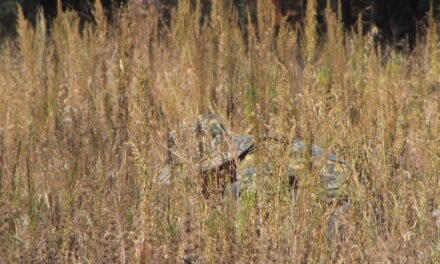North Carolina State University’s Arts NOW series, directed by Professor Rodney Waschka II presented the Balkan Quartet. This was a return performance in celebration of the ensemble’s new CD recording* and the world premiere of String Quartet No. 3 by Rodney Waschka II, which is dedicated to the quartet. The artists are Sinisa Ciric and Mirna Ogizovic, violins, Danijela Zezelj-Gualdi, viola, and Martin Gueorguiev, cello.
The program also included two computer music pieces on recorded media by the highly regarded composers, Larry Austin (b.1930) and Allen Strange (1943-2008). Professor Waschka claims that there are two ways to listen to electronic music: through head phones or in a well-equipped hall with a good sound system. How fortunate to experience the latter!
Austin’s Shin-Edo:CityscapeSet (1994-1996) is a “sonic reverie of Tokyo” which was inspired by life in Japan while on sabbatical. This very accessible piece reminds me that electronic and computer-assisted composition involves great imagination and technical prowess. And though 21st-century technology is far less cumbersome, Austin’s artistic vision stands alone. Like stepping on a modern elevator, I felt transported by the whoosh of the trains, the language and the chimes, all of which suspended time.
“Quinault Cathedral” (2004) by Allen Strange, is beautiful, funny and yes, out of the ordinary.
As always, Waschka advised students, “… it is okay to laugh” (I did) and said that it is customary to applaud, even though the composer is absent. Strange is greatly missed by his colleagues, students and followers of new music.
Balkan Quartet opened the program with Aleksandar Gajic’s “Souvenir from Marinko’s Pond.” A composition that has become their signature piece, Gajic’s piece is fiery and emblematic of the Balkan region. Their performance was superb.
Waschka used compositional algorithms and computer assistance to create the sound world for his String Quartet No. 3. According to Waschka, this work is structured as a single movement in a pseudo-ritornello (Italian baroque) form in 7/8 time. For modern listeners, a recurring theme stitches the piece together. In the end, it is the sound experience that matters. Long sustained notes, punctuated by rapid intrusion of lively pizzicato driven melodies, snippets of harmonic minor passages and rhythmic vitality give the piece an eastern European flavor. But the performers brought all of this to life. They did so brilliantly. I hope a recording soon follows.
The remaining pieces all draw from the musical languages of Eastern Europe. From the traditional Folk Suite arranged by Sinisa Ciric and Konstantin Blagojevic to the contemporary Hotland by Aleksandar Gajic, and Balkan Blues by American composer Sam Baltzar, the ensemble played with precision and flawless technique. Sinisa Ciric’s virtuosic improvisation (“Gypsy Song,” arr. Marko Aleksic) was bold and passionate. And Milos Simic’s “Sevdah Tango” gave us a chance to hear a lush cello solo played by Martin Gueorguiev and a beautiful violin/viola duet (Mirna Ogrizovic and Danijela Zezelj-Gualdi). There is more on the CD – a definite “buy.”
In a world that is increasingly ‘flat,’ where technology and geopolitics have become center stage, the preservation of the rich cultural heritage of the Balkan Peninsula is ever more important. This event served as a reminder that cultural exchanges are not just meaningful, but necessary for a peaceful world. Beginning with college communities, the Balkan Quartet contributes to important conversations that shape attitudes and understanding.
To listen to the Balkan Quartet at the Kennedy Center, click here.
This commendable new-music series continues on February 18. For details, check our calendar closer to that event.
*The ensemble’s new CD has been delayed as its notes are reprinted. Stay tuned!











